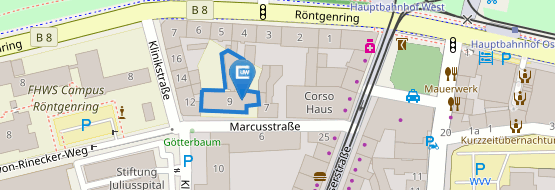Introducing the PhD Researchers: Menghuan Chen (Project B1)
14.07.2022It's time again for the introduction of a PhD researcher: Menghuan Chen is a doctoral researcher in project B1 ("Avoidance and approach conflicts in threatening and rewarding situations") under the supervision of Prof. Dr. Andre Pittig and Prof. Dr. Paul Pauli at the department of psychology.
Before starting her PhD, Menghuan studied cognitive neuroscience at the University of Chinese Academy of Sciences in Beijing, China, where she conducted research on cue reactivity measuring of addiction patients with methods of virtual reality, eye-tracking, and machine learning.
Menghuan, please explain your research area in 2-3 sentences.
"My research is in the field of human approach-avoidance conflict processing and value-based decision, closed to the treatment of addiction and anxiety disorders. We expect that a spontaneous avoidance motivation induced by adding a threat to the previous rewarding option would reduce their approach behavior. I am also going to explore the neural substrates involved in the conflict processing and decision-making phase with fMRI."
What is your next step/plan?
"I am currently programming the experiments. Since this is my first study in Germany, I am not that familiar with the local systems and I am not fluent in German. Fortunately, we have some student assistants to help recruit subjects."
Does the PhD meet your expectations? What has surprised you?
"During my master's studies, we had two or three master's students and two senior PhD students in the same office, and some were doing research on animals, others on humans. We learned a lot from each other and got research suggestions, but also valuable friendships and social support. So, before I started my PhD, I already had a pretty vivid idea of what the life of a PhD student was like.
In the graduate program, where people from different backgrounds come together, we can broaden our academic horizons and learn a lot about research methods on humans and animals. It's also very cool to exchange ideas and perspectives in an international setting.
However, there are also some unexpected things. For example, the level of self-discipline required and how well you structure and navigate your day-to-day life as a PhD student is in some ways beyond my imagination. It's still new to have that experience."
Where do you see challenges and hurdles for the near future?
"I think the biggest challenge is to imagine that there is so much work involved for the entire study, including programming in a new language (Python and PsychoPy), data collection and analysis, writing and figuring, and so on. That might make me a little apprehensive. But when I broke it down into small pieces of goals, everything seemed easier and more exciting."
To whom can you recommend doing a PhD?
"From my experience, I would say that you should have an understanding and expectation of yourself at this stage and in the years to come. Imagination is an important part of productivity and motivation. And you should have a high level of responsibility and self-discipline."
Is Würzburg a good place for an optimal "PhD life"?
"Würzburg is a beautiful city with ancient history. The weather in early summer is so nice and pleasant. I like to be here. Since the city is quite small, it doesn't take long to get from the office to my home (only 15 minutes for me!). But sometimes there is not so much going on in the city. That's why I want to find out soon how I can further develop my interests and skills here."



